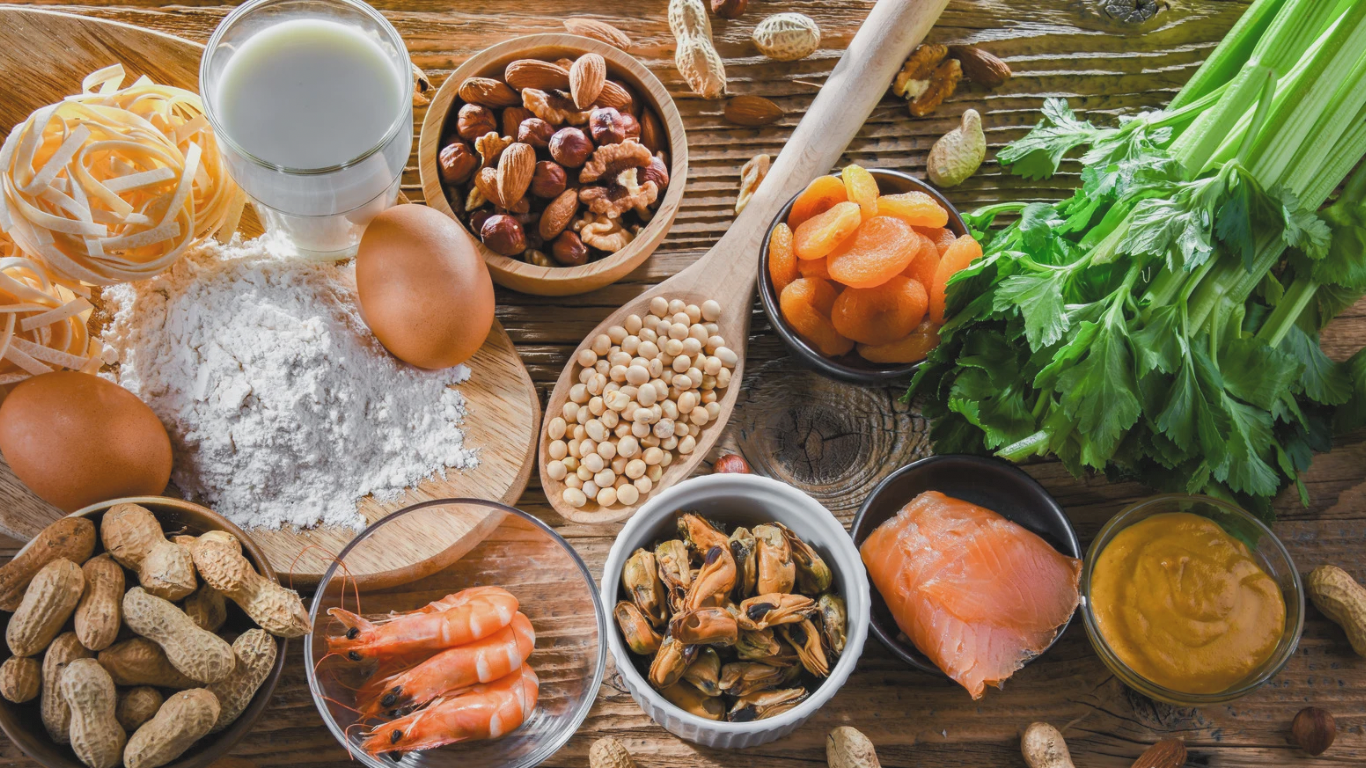
Key Supplements for Joint Health
1. MSM: A Sulfur Compound for Joint Mobility
Joint pain can feel like an unavoidable part of aging, but with the right strategies, you can support your body and stay active. Key supplements (along-side a whole foods, anti-inflammatory diet) can help reduce inflammation, protect your joints, and keep you moving pain-free.
As much as I do on a daily basis to support optimal health and mitigate the inevitable biological aging of my body, joint pain has found its way in. Now full confession: I have been in 9 car accidents as a teen/young adult (not my fault, maybe someone has a hit on me?) and have been an athlete/gym rat all my life. Regardless, I truly thought I had the system beat until recently, when random little pains show up and then seem to linger for no apparent reason other than the dreaded excuse of “age.” Ugh.
It's hard to even say, because I know that biological aging is not the same as chronological aging. Just because I’m over 40 doesn’t mean, in my mind, that my body should hurt a little bit all the time. Right? So this year, I’m
focusing even more on supporting longevity and keeping inflammation at bay. And because I’ve been eating a primarily whole foods, inflammatory diet for many years, I’m going to focus here more on supplements for those who can relate to a need for more aggressive support. (If you haven’t shifted your diet, start there. You can’t out-supplement a poor diet!) Now, let’s dive into the science behind a few key nutrients that can potentially help slow the dreaded inevitable aging process.
MSM is one of my favorite compounds for reducing inflammation and pain, potentially contributing to improved range of motion. MSM is a sulfurous compound naturally found in protein-rich foods like meat and eggs, and in smaller amounts from sulfur-containing fruits like apples and raspberries, as well as vegetables like broccoli and onion.
Horsetail herb also contains MSM, and a pure supplemental form is available either alone or—my preferred blend—with glucosamine and/or chondroitin for a comprehensive joint support approach.
- Benefits: Reduces inflammation, improves range of motion, and decreases pain.
- Natural Sources: Meat, eggs, apples, raspberries, broccoli, and onions.
- Supplement Tips: Best when combined with glucosamine and/or chondroitin for comprehensive joint support.
2. Chondroitin: Supporting Healthy Cartilage
Chondroitin, found naturally in eggs and collagen, has mixed results in research when it comes to pain reduction, but some studies show increased efficacy when supplemented in combination with glucosamine. Glucosamine is most concentrated in shellfish, but for therapeutic purposes, is more concentrated in supplement form.
Because these compounds are naturally found in connective tissue, it makes sense that they could potentially support healthy joints. Again, research is mixed, but several studies indicate that pharmaceutical-grade quality supplements have shown a reduction in pain.
- Benefits: Found in connective tissue; may reduce joint pain and support healthy cartilage.
- Natural Sources: Eggs, shellfish + collagen.
- Supplement Tips: Research suggests effectiveness improves when combined with pharmaceutical-grade glucosamine.
3. NAD+: Energizing Joint Health
NAD+ may indirectly support joint health and mitigate pain through its role in DNA damage repair, energy production, and inflammation modulation. Emerging research has shown that depletion of NAD+ leads to loss of cartilage and increased inflammation. There are two main forms of NAD: NAD+ and NADH, either of which can be taken in supplement form. Some argue that NAD is not easily absorbed across cell membranes, and so its precursor NMN may be more beneficial to take.
- Benefits: Supports DNA repair, energy production, and reduces inflammation.
- Supplement Tips: NAD+ precursors like NMN may have better bioavailability and can help replenish NAD+ levels.
4. Resveratrol: Antioxidant Protection for Joints
Resveratrol is a phytochemical compound with antioxidant activity, naturally found in grapes and berries, that in a therapeutic dosage, may protect joints from degradation and inflammation. Resveratrol has also demonstrated neuro-protective and cardiovascular benefits, and also stimulates NAD+ production, so is a popular supplement combination.
- Benefits: Protects joints from degradation and inflammation, stimulates NAD+ production, and supports cardiovascular health.
- Natural Sources: Grapes, berries, and red wine.
- Supplement Tips: Look for therapeutic dosages in supplement form for maximum benefit.
5.Fish Oil & PRMs: Targeted Inflammation Relief
Another favorite anti-inflammatory supplement of mine is fish oil or, for more aggressive anti-inflammatory action: (specialized) pro-resolving mediators (SPM or PRM’s). These mediators are essentially concentrated components in fish oil that specifically target inflammation and oxidative stress, so they can potentially reduce soreness and pain.
- Benefits: Targets inflammation and oxidative stress, reduces soreness, and alleviates joint pain.
- Natural Sources: Fatty fish like salmon, mackerel, and sardines.
- Supplement Tips: Specialized pro-resolving mediators (SPMs) offer more targeted anti-inflammatory action.
6. Turmeric/Curcumin: Nature’s Anti-Inflammatory
Turmeric/curcumin is a strong standard supplement for pain and inflammation, with some research touting it in comparison to NSAID pain killers. Curcumin is the primary compound in turmeric that provides anti-inflammatory activity, but some studies have shown that a combination of turmeric and curcumin may provide better results than curcumin alone.
- Benefits: Potent anti-inflammatory properties; some studies compare it to NSAID painkillers.
- Natural Sources: Fresh turmeric root or powder.
- Supplement Tips: A blend of turmeric and curcumin may provide enhanced results.
7. Collagen: Building Stronger Connective Tissue
Collagen is another standard joint supplement recommendation, which if taken correctly and in the right form, can potentially provide cartilage support. Type II collagen, usually sourced from chicken bones or eggshell membranes, is most commonly associated with joint support benefits.
- Benefits: Supports cartilage and connective tissue health.
- Natural Sources: Chicken bones, eggshell membranes, and certain broths.
- Supplement Tips: Type II collagen is most effective for joint support.
8. Additional Herbs and Nutrients: Bonus Anti-Inflammatory Boosts
There are many other herbs and nutrients often found in joint supplement formulas which may provide additional inflammation relief. These include:
boswelia, hyaluronic acid, cat’s claw, bromelain, rutin, and other proteolytic enzymes.
Taking care of your joints is a vital part of supporting overall health and longevity, especially as we age. While diet and lifestyle are foundational, targeted supplementation can provide that extra layer of support for reducing inflammation, easing pain, and maintaining mobility. Whether you're exploring compounds like MSM and glucosamine or incorporating antioxidants like resveratrol and turmeric, there's a wealth of science-backed options to help protect your joints.
Remember, no supplement can replace a nutrient-dense, anti-inflammatory diet, so start there and build from a strong foundation. With the right approach, you can stay active and vibrant for years to come—because feeling good shouldn’t have an expiration date!



Recent Blog Posts
Share this post!
About the Author
Rhya Pachin is a licensed dietitian nutritionist who employs an "integrative" approach to support overall health rather than addressing just one symptom. As a certified LEAP therapist, she designs and supervises custom elimination diets. Her focus areas include gastrointestinal conditions like IBS and IBD, autoimmune diseases such as rheumatoid arthritis and Hashimoto's, persistent weight issues, food sensitivities, and chronic inflammatory conditions in both adults and children.




